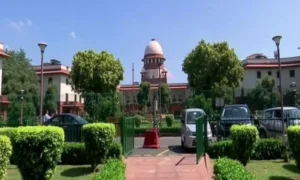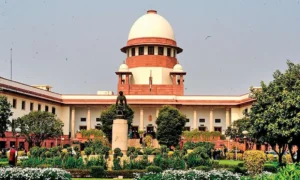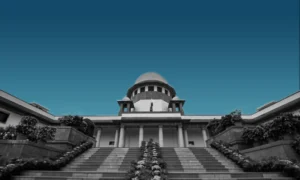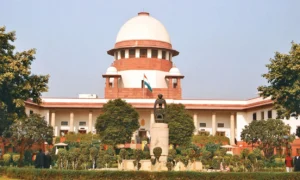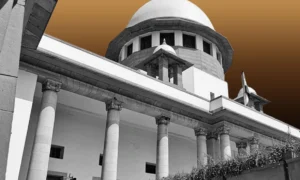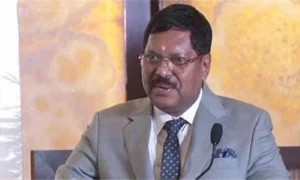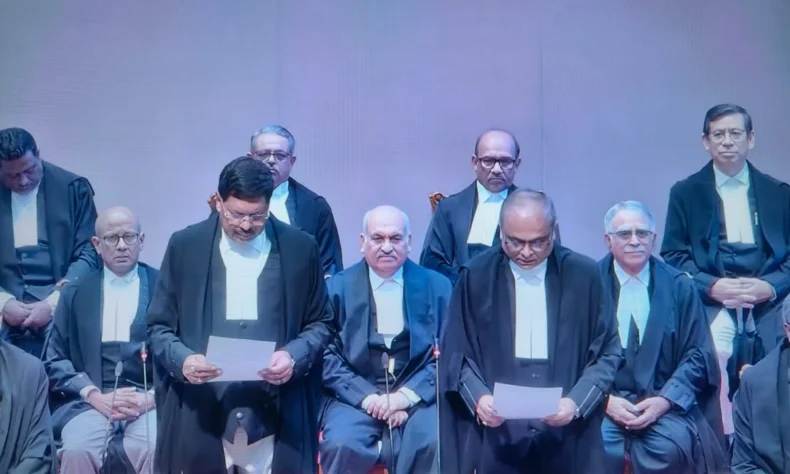
The Supreme Court of India on Friday welcomed two new members to its bench with the swearing-in of Justice Alok Aradhe and Justice Vipul Manubhai Pancholi. With their elevation, the apex court now functions at its full sanctioned strength of 34 judges, an event that reinforces its institutional capacity at a time when the court is engaged in adjudicating a wide spectrum of constitutionally significant and socially consequential matters.
The appointments were made after the Supreme Court Collegium, headed by Chief Justice D.Y. Chandrachud, recommended their names on August 25. The Union government moved swiftly, approving the elevations within two days, and the oath of office was administered in the Supreme Court premises on August 29.
The promptness with which the executive acted has been noted as indicative of rare alignment between the judiciary and the Centre on appointments, in contrast to the often protracted process that has in the past delayed the filling of judicial vacancies.
Justice Alok Aradhe’s judicial journey has spanned over a decade and a half, marked by a succession of prominent postings. Appointed as an Additional Judge of the Madhya Pradesh High Court in 2009 and confirmed as a permanent judge in 2011, he later served on the benches of the Jammu & Kashmir High Court and the Karnataka High Court, where he also briefly performed the duties of Acting Chief Justice.
In January 2025, he was appointed Chief Justice of the Bombay High Court, where his tenure was noted for a strong emphasis on judicial discipline and docket management. His elevation to the Supreme Court is seen as the culmination of a career characterised by steady progression, cross-jurisdictional exposure, and administrative acumen.
Justice Vipul Pancholi, whose professional foundation was built in the Gujarat High Court, brings to the bench decades of experience both at the Bar and on the Bench. Enrolled as an advocate in 1991, he practiced widely before his appointment as an Additional Judge in 2014.
Two years later, he was confirmed as a permanent judge of the Gujarat High Court. In July 2023, he was transferred to the Patna High Court, where he soon after assumed charge as Chief Justice in July 2025. His elevation to the Supreme Court, however, was accompanied by deliberations within the collegium itself.
Justice B.V. Nagarathna recorded her dissent against his selection, contending that his appointment disrupted the seniority norm and risked creating an imbalance in regional representation, as Gujarat would then have three sitting judges in the Supreme Court. Despite this objection, the majority view of the collegium prevailed, leading to his nomination and subsequent confirmation.
The swearing-in of the two judges does more than restore the Court’s numerical strength. It underscores the continuing debate around the principles governing judicial appointments in India. Seniority, merit, and the need for diverse representation from across the High Courts remain the touchstones of the collegium’s decision-making, yet the dissent voiced in this round of appointments reflects the tensions inherent in balancing these considerations. The government’s expeditious approval of the recommendations also stands in contrast with earlier instances where the collegium’s suggestions had languished for months or even years.
For the Supreme Court, functioning at full capacity is not merely a matter of optics. The court is burdened with an ever-growing docket of constitutional questions, complex commercial disputes, and pressing matters of civil liberties. The presence of a complete bench of 34 judges enhances its ability to constitute multiple benches, allocate caseloads effectively, and expedite hearings of matters of national importance.
The elevation of Justices Aradhe and Pancholi also reflects the evolving dynamics of the Indian judiciary, where the career trajectories of judges span multiple jurisdictions, and the collegium continues to grapple with the need to strike a balance between experience, diversity, and seniority. As they don their new robes in the nation’s highest court, both judges carry with them the weight of public expectation and the responsibility of contributing to the Court’s evolving jurisprudence at a pivotal moment in India’s constitutional history.
📰 Crime Today News is proudly sponsored by DRYFRUIT & CO – A Brand by eFabby Global LLC
Design & Developed by Yes Mom Hosting

